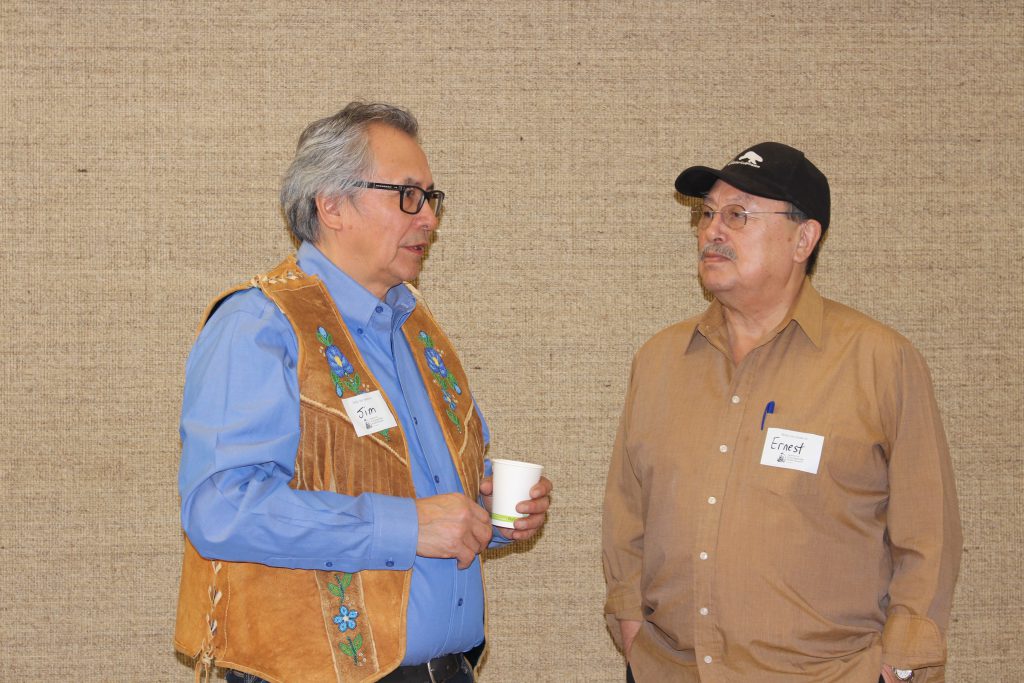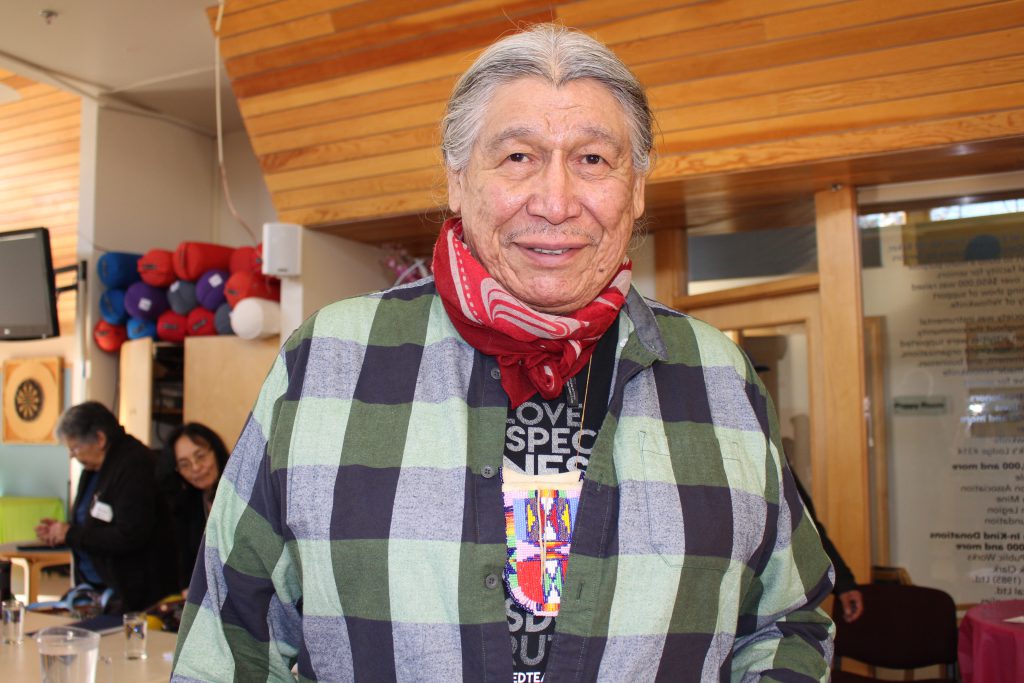With support from private donors and the NWT SPOR PICHI network, Indigenous elders gathered in Yellowknife to discuss a plan for Indigenous healing services in the NWT. Aspects of the meeting related to planning for indigenous healing research are highlighted.
Workshop Presenters
- Be’sha Blondin, Elder and Traditional Wellness Keeper, Arctic Indigenous Wellness Foundation
- Nicole Redvers, Naturopathic Doctor, Operational Lead, Arctic Indigenous Wellness Foundation
- Jim Antoine, Chair Northwest Territories Health and Social Services Authority
- Susan Chatwood, Scientific and Executive Director, Institute for Circumpolar Health Research
Objectives of the Workshop:
To identify:
- Current status of work to establish an Aboriginal Healing Centre
- Understanding of how we consult and work with health authority
- Awareness of Cultural Training component
- Understanding of Traditional Wellness
- Role of research in Indigenous Healing services
Key Points from the Presentations:
- Background on the AIWF
- Key principles of traditional healing
- Working together is a key (Dene, Inuit, Metis, Men and Women, Elders and Youth)
- Natural laws (environmental, spiritual, mental, emotional, physical)
- Traditional way of life
- Health System Research
Some things to consider for traditional healing facility and things to think about:
- Need strong commitment to make partnerships successful
- Partnerships will make all the difference
- There are many supportive organizations and people
- Need a strong foundation of values and principles to support decision making
Health and Traditional Healing:
- Encourage everyone to consider how other social, historical and cultural issues impact health services and access (child protection, residential school, culture in healing)
- Trust in traditional healing is greater than trust in the current health system
- Significant opportunity for traditional healing to have greater impact in other program and policy areas
- Indigenous people can be leaders and conveners in this area with the right support
Key Points from Discussions:
- Trust is an important element
- Autonomy is important
- Humility and being humble is essential to good healing
- Only take what you need
Problems and Challenges:
- Budget allocations (no funding for indigenous programs)
- Organizational and government interests are not always clear
- Inefficiency of current system
- Inability of current system to address indigenous healing needs
Possible Solutions:
- Prevention and intervention are key components of the Healing Centre
- Address the root cause not the symptoms
- Indigenous control (leadership in health system)
Goals, targets and indicators:
- Productive and busy lives
- Full participation in health and life
- Personal choice
- Harmony with environment, social and spirit
- People receive the best care (they walk in and they feel important, cared for, loved)
- Less suffering and Disease
Implementing broad principles in healing:
- Holistic (interconnectedness and social determinants)
- World medicine (land, plants, water, air, spirit)
- Commitment to traditional teachings is important.
- Lifelong commitment to a healing way of life is important (lifelong learning and apprenticeship)
- Commitment to awareness is important (more people need to know about this and its importance)
- Natural laws
- Foster life in all forms (plant, animal, human)
- Hope
Potential Research Topics:
- Socio-cultural and political barriers
- Relevance of care
- Fear of being misunderstood
- Forging good relationships
- Inconsistencies in care
- Role of trust in healthcare
 Nicole Redvers (left), Be’sha Blondin (right)
Nicole Redvers (left), Be’sha Blondin (right)
 Jim Antoine (Left)
Jim Antoine (Left)


Persons Attending:
- Nicole Redvers
- Francois Paulette
- Jim Antoine
- Susan Chatwood
- Be’sha Blondin
- Mary Teya
- Ernest Pokiak
- Marie Adele Rabesca
- Joe Rabesca
- Violet Beaulieu
- Florence Barnaby
- Robert Sayine
- Pat Martel
- Gabriel Hardisty
- Annie Quirke
- Edna Elias
- Bessie Sihtatak
- Theresie
- Rassi Nashailok
- Olive Nitsizia